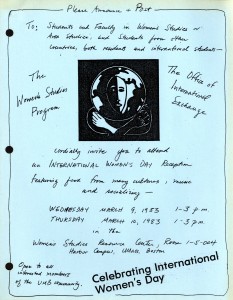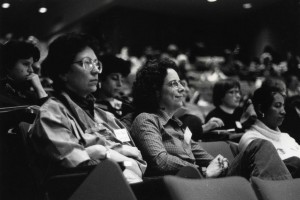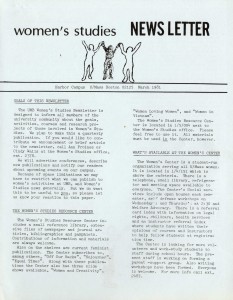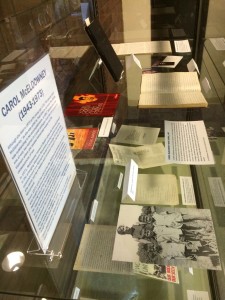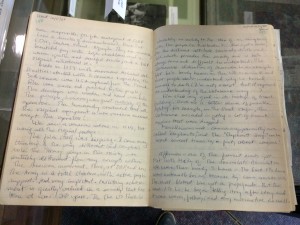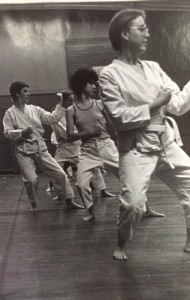Women’s Studies emerged in the U.S. in the 1960s and 1970s as a national curriculum and higher education institutional reform movement that addressed issues of gender bias, gender inequality, and sexism in the academic canon and society at large. One of the first Women’s Studies programs in New England was founded at UMass Boston. In the late 1960s, UMass Boston students, faculty, and staff organized a Women’s Association that addressed a variety of feminist issues.
Faculty in the humanities and social sciences developed courses focused on women and gender. In 1972, a student-faculty committee proposed a Women’s Studies concentration, and the group gathered hundreds of signatures in support of this proposal on a petition to the University Assembly and UMass Boston administration. In 1973, the proposal was approved, and in the fall of that year, the 18-credit interdisciplinary concentration was official.
Over the years, the Women’s Studies faculty at UMass Boston grew, and a bachelor’s degree in Women’s Studies was proposed in the late 1980s. Chancellor Sherry H. Penney championed the B.A. program during her first year at UMass Boston in 1988, and the program was approved by the Board of Regents in 1989. That fall, Women’s Studies offered a major and minor, but remained as a “program” in order to encourage faculty across disciplines to participate in curriculum development and teaching. The program became a department in 2006, and is now the Women’s and Gender Studies Department.
From the 25th anniversary commemorative booklet, Women’s Studies at UMass Boston Celebrates 25 Years, 1973-1998, a note from Program Director Jean Humez:
The program has grown and evolved in many ways in this quarter century. We grew to five full-time faculty lines; we evolved from a concentration into a full-fledged academic major (with a minor); and we have continued to develop our curriculum in response to new student and faculty interests (always constrained by resource realities, of course!). Through all the changes, we have remained dedicated to the best goals of feminist education, still enunciated in our handbook:
• To bring the history and critical perspectives of women of different cultures, races, and social classes into the university curriculum;
• To stimulate and support new, nonsexist research and writing on women and gender by students and faculty;
• To help promote a nonsexist university environment.
University Archives & Special Collections holds the records of the Women’s Studies Program from 1972-2006. The records document the program’s governance and growth, including faculty appointments and student enrollment; curriculum development; and special projects and associated organizational work. Formats include proposals, by-laws, meeting minutes, budget information, correspondence, curricular materials, and publications.
View the finding aid for the Women’s Studies Program records here. Browse publications by the Women’s and Gender Studies Department here.
For questions about this collection or to schedule a research appointment, please contact library.archives@umb.edu or 617-287-5469.
University Archives & Special Collections in the Joseph P. Healey Library at UMass Boston collects materials related to the university’s history, as well as materials that reflect the institution’s urban mission and strong support of community service, notably in collections of records of urban planning, social welfare, social action, alternative movements, community organizations, and local history related to neighboring communities.
University Archives & Special Collections welcomes inquiries from individuals, organizations, and businesses interested in donating materials of an archival nature that that fit within our collecting policy. These include manuscripts, documents, organizational archives, collections of photographs, unique publications, and audio and video media. For more information about donating to University Archives & Special Collections, click here or email library.archives@umb.edu.

